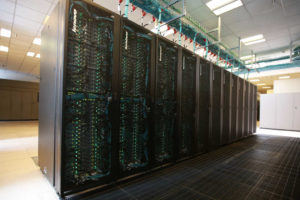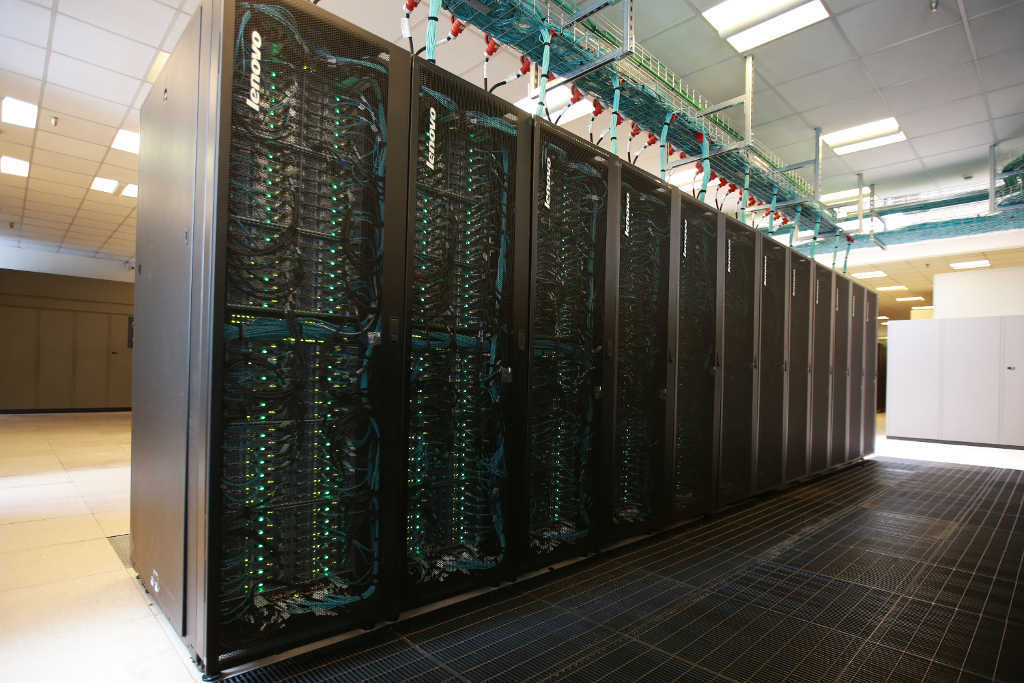
Marconi Supercomputer at Cineca
At SC16, Lenovo announced the completion of its second phase deployment at CINECA — a world class HPC research resource with the capabilities to become a leading artificial intelligence compute resource.
Phase one at CINECA, an academic consortium, was completed in May 2016 – coming in at 1.7 Petaflops, which at the time it was the largest Intel Omni-Path Fabric system in the world. Lenovo and CINECA are pleased to announce the delivery and installation of phase two, a 3,600 node Intel Xeon Phi processor which is interconnected with 100Gb Intel Omni-Path fabric – delivering 6.2 Petaflops of performance.
Dubbed Marconi by CINECA, the installation is expected to be one of the largest SuperComputers in Europe and will be online for researchers to transform data into new insight across such disciplines as physics, chemistry, astronomy, medicine, and urban planning. Leveraging the Lenovo maintained OpenSource Extreme Cluster/Cloud Administration Toolkit (xCat) for system management, CINECA’s Marconi system houses the core tools which will enable it to become one of the premier machine learning and artificial intelligence systems in the world.
Lenovo also strengthened its position in the high performance computing space maintaining its #1 HPC vendor ranking in China while becoming the #2 vendor in the world in terms of total systems included on the TOP500 list.
As a result of Lenovo’s commitment to its client success we are pleased to share that we have once again taken a greater share on the TOP500 list. After just its fifth time on the TOP500 list, Lenovo systems now power nearly 100 of the largest SuperComputers on the planet— ranked the #1 vendor in China and #2 on the TOP500 list in terms of quantity. The TOP500 list includes clients across all geographies and workloads in both research and business – Lenovo is uniquely positioned to support the unique needs of the world’s largest HPC clients as well as the capabilities and focus needed to make HPC accessible for smaller departmental HPC users.




